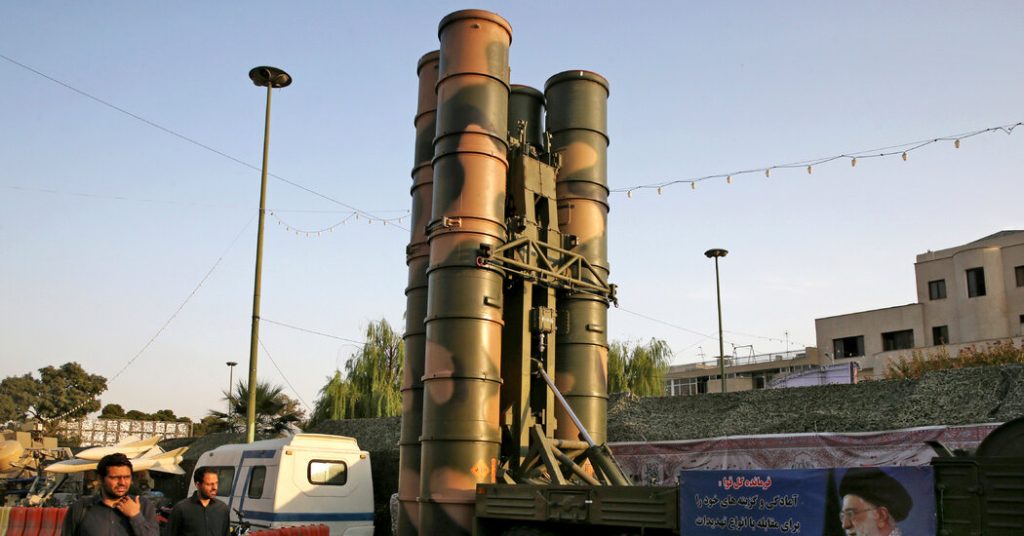An Israeli airstrike on Iran damaged an air defense system on Friday, sending a message that Israel could bypass Iran’s defenses and disable them without being detected. The strike targeted a defensive battery near Natanz, a city critical to Iran’s nuclear weapons program, in retaliation for Iran’s recent strike on Israel. This attack, part of a series of tit-for-tat attacks between the two countries, has raised fears of a broader regional conflict. However, the relatively limited scope of Israel’s strike and the subdued response from Iranian officials have helped ease tensions in the region.
The conflict between Iran and Israel intensified on April 1, when Israeli warplanes killed seven Iranian officials in Syria. In response, Iran launched a barrage of drones and missiles at Israel, marking its first ever direct assault on Israeli soil. Despite Israeli leaders considering ordering a more comprehensive attack on Iran, the strike on Friday was designed to showcase Israel’s military capabilities and send a warning without further escalating tensions. As Israel continues to battle Hamas in Gaza, efforts to de-escalate tensions between Israel and Iran have been ongoing.
The Israeli attack on Iran targeted an S-300 antiaircraft system at a military base in the province of Isfahan. Satellite imagery analyzed by The New York Times confirmed damage to the radar of the S-300 system. Although the exact type of weapon used in the attack is unclear, reports indicate that Israel deployed drones and at least one missile fired from a warplane. The strike was carried out in a way that allowed the weapon to evade Iran’s radar defenses, with Iranian officials noting that they did not detect any intrusion into the country’s airspace on Friday.
While tensions between Israel and Iran are being managed, Israel’s conflict with Hamas continues in Gaza. Israeli airstrikes in Rafah resulted in the deaths of at least 10 civilians, including women and children. Palestinian residents in the region have been displaced, with fears of an Israeli ground offensive looming. Prime Minister Benjamin Netanyahu has expressed intentions to invade Rafah to eliminate Hamas’s battalions and destroy its tunnel networks. World leaders, including President Biden, have urged Israel to refrain from a ground invasion due to the risk of heavy civilian casualties.
In Iraq, an explosion at a military base used by an Iranian-backed armed group resulted in one death and eight injuries. The source of the explosion remains unknown, with Iraq’s military command not specifying whether it was caused by an air attack. The U.S. military denied any involvement in the strike, and the Israeli military declined to comment. Meanwhile, Turkish President Recep Tayyip Erdogan met with Hamas political leader Ismail Haniyeh to discuss Israeli attacks on Gaza and the need for humanitarian aid to reach the region. Erdogan condemned Israel’s actions and expressed hope for accountability for the suffering in Gaza.
As tensions continue in the Middle East, world leaders are working to de-escalate conflicts and prevent further violence. With ongoing conflicts between Israel, Iran, and Hamas, the situation remains fragile. Efforts to prevent a regional war and address the humanitarian crisis in Gaza are paramount, with international leaders calling for peace and dialogue to end conflicts in the region.


